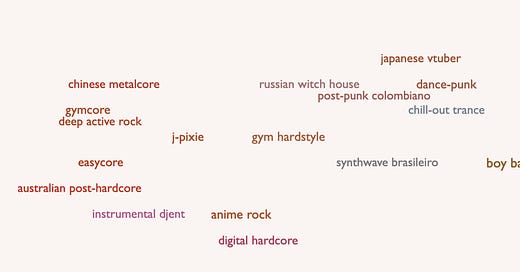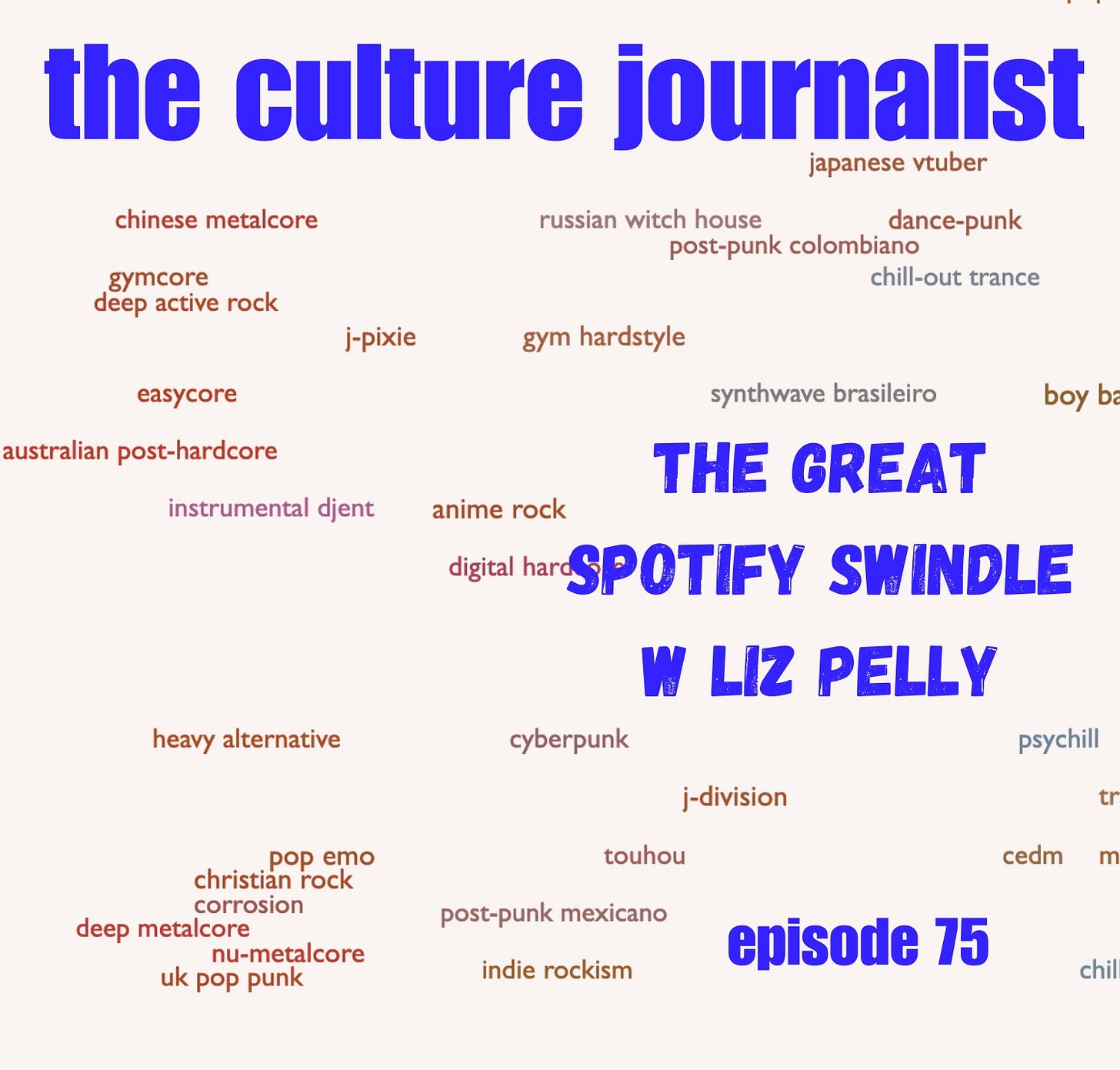The Culture Journalist is a podcast about culture in the age of platforms. Episodes drop every other week, but if you want the full experience — including bonus episodes and our eternal parasocial friendship — we recommend signing up for a paid subscription.
Paid subscribers also get access to CUJOPLEX, a private Discord server and online hangout zone where independent culture fans who like talking about things like creative economies, media theory, current events, and the future of entertainment and journalism can congregate, share links, and talk about the news of the day.
When it hit US app stores in 2011, Spotify seemed to herald a democratizing tech future that was just on the horizon. Here was an app that professed to level the playing field for music fans and artists alike via what Spotify imagined to be a “data-driven democracy”: For fans, it put pretty much any music you wanted at your fingertips, anytime. On the artist side, it promised to replace industry gatekeepers with a system where anyone who wrote a good enough song could land a viral hit — while also righting the compensatory wrongs of technological predecessors like Napster.
That’s… not exactly how it’s played out.
Today, Spotify’s myth of meritocracy has been supplanted by a system where major labels make millions of dollars a day from streaming while artists make less than a penny per stream; where AI DJs do the choosing for you within an algorithmic echo chamber; and where “vibe”-oriented playlists are filled with music by ghost artists designed to keep you listening longer while paying attention less.
How all of this came to pass — and its far-reaching ripple effects on everything from cultural taste and aesthetics to the very meaning of being an “independent” artist — is the subject of Mood Machine: The Rise of Spotify and the Costs of the Perfect Playlist, a new book by independent music journalist Liz Pelly. The work is the culmination of a decade of dogged reporting covering Spotify’s rise from democratizing platform to corporate behemoth, and how, in the process, it has eroded the vast majority of artists’ ability to make a living off of their work.
Liz joins us to discuss how independent artists got swept up in a system that was clearly never built with them in mind, and how it managed to devalue their work to almost nothing. We also get into Spotify’s flattening impact on music, in both an aesthetic and economic sense. And we break down the platform’s push towards “lean-back” listening — you know, beats to study and chill to — and how it’s reshaped the very meaning of being a fan.
Follow Liz on Instagram.
Get Mood Machine and check out more of Liz’s work here.
Read an excerpt, "The Ghosts in the Machine," at Harper's



















Share this post